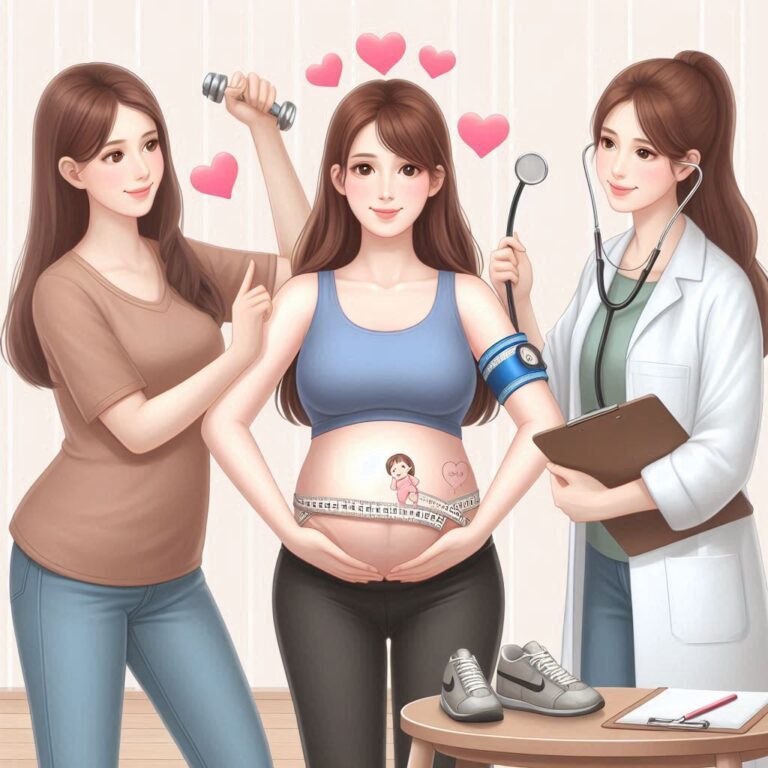Health Challenges for Young Pregnant Women. For every woman, pregnancy is a transforming trip; however, for younger mothers-to-be, it might pose certain health issues that call for particular attention and care. Physiological, psychological, and social challenges abound for young pregnant women that could affect their well-being as well as the growth of their child. First step in properly addressing these difficulties and guaranteeing a safe pregnancy result is knowledge of them.
Challenges for Physical Health
Anemia:
Young pregnant women especially often have anemia. Iron deficiency anemia often results from a low red blood cell count (hemoglobin or hematocrit). Women need far more iron than normal during pregnancy to meet their growing baby’s demands and their own increasing blood volume.
Iron deficiency anaemia presents with symptoms including:
- feeling really weak or exhausted
- Looking pallid
- Feeling faint or experiencing vertigo
- dyspnea even with little effort
Usually advised by healthcare professionals to fight this illness is iron and folic acid supplements; this is particularly crucial for younger women whose bodies might still be growing themselves.

Diabetes in Pregnancy
Blood sugar levels rising during pregnancy lead to gestational diabetes. This disorder might cause problems for mother and child hence it calls for cautious observation and treatment. Young pregnant women with gestational diabetes run more chances of:
- delivering quite big infants, which may complicate delivery
- Babies having post-birth respiratory issues
- Newborns with jaundice and low glucose levels
- Birth defects in some circumstances
- the amniotic fluid means the chance of premature labor.
For most women, even teens, gestational diabetes goes away after pregnancy; nevertheless, throughout the pregnancy itself, appropriate care involving nutrition, exercise, and sometimes medication is crucial.
Premature Eclampsia with High Blood Pressure
Teenage pregnancy raises a greater chance of high blood pressure development during pregnancy. This may advance to pre-eclampsia, a dangerous disorder marked by elevated blood pressure and symptoms of harm to other organ systems. Pre-eclampsia if untreated could cause eclampsia, a condition marked by convulsions and potentially fatal nature.
Regular prenatal visits allow young moms to monitor blood pressure and identify early symptoms of these disorders, which may include:
- rapid hand and facial edema
- Regular migraines
- Vision shifts
- belly aches
Uncorrect Weight Gain
For young women especially, weight control during pregnancy may be somewhat difficult. Both too much and too little weight gain have hazards:
- Greater weight gain raises the risk of gestational diabetes, high blood pressure, and delivering bigger infants.
- Undernutrition or malnutrition brought on by poor weight gain might limit the baby’s growth and development.
- Maintaining normal weight growth during pregnancy depends on nutritional advice tailored to the requirements of younger moms.
- Hazards to the Youngster
- The health issues young expectant mothers deal with directly affect the development and welfare of their unborn children.
Term Birth Preterm
One of the most important dangers in adolescent pregnancies is preterm birth—that is, delivery before 37 weeks of pregnancy. The CDC estimates that one in ten American newborns arrive early. Teenage moms’ newborns have more risk of being delivered prematurely, which may cause a variety of medical issues.
Premature babies may have:
- Troubles breathing
- Eating difficulties
- Visual and auditory problems
- Developmental delays
- Learning disabilities:
- In some circumstances, cerebral palsy
Many times requiring long hospitalizations in neonatal intensive care units (NICUs), these infants may also need specific treatment even upon returning home.
Low Starting Weight
Teenage moms’ babies run more danger of having low birth weight, defined as less than 5.5 pounds at delivery. Low birth weight is linked to either preterm delivery or inadequate fetal development during pregnancy and may follow from:
- higher chance of diseases
- Problem with breathing
- Trouble controlling body temperature
- Problems with feeding
- Long-term development problems
Congenital defects
Particularly those who get poor prenatal care, young pregnant women run more danger of having infants with birth abnormalities or congenital deformities. These could influence mild to severe levels and might vary from:
- Cardiac development
- Brain evolution
- limb formation
- Additional organs
Early detection of any problems depends on regular prenatal care with suitable testing and screenings.
Social and Psychological Difficulties
Depression and Mental Health
For young pregnant women, especially in cases of an unexpected pregnancy, depression is a typical struggle. Mental health problems may arise from the emotional and hormonal changes of pregnancy as well as from possible social stigma, financial worries, and disturbance of job or educational ambitions.
- Pregnancy’s depressed symptoms might include:
- Depression on demand
- Lack of enthusiasm for events
- Modifications in sleeping habits
- Guilt or worthlessness
- Trouble focusing
Untreated, depression may cause inadequate prenatal self-care and perhaps interfere with bonding with the newborn. Following birth, some young moms may also suffer from postpartum blues or depression.
Restricted Availability of Prenatal Treatment
Many young pregnant women have obstacles to receiving appropriate prenatal care, usually related to:
- Financial limitations
- Insufficient movement
- Restricted understanding of the value of prenatal care
- Fear of stigma or condemnation
- Lack of familial reinforcement
Monitoring the health of mother and child, spotting any problems early on, and delivering required treatments and education depend on regular prenatal visits.
Overcoming Obstacles Comprehensive Prenatal Care
Early, consistent prenatal care is the pillar of a young woman’s safe pregnancy. Healthcare professionals may:
- Watch for any possible difficulties.
- Provide dietary advice.
- Take required vitamins and immunizations.
- Teach about pregnancy, delivery, and baby care.
- Link young women with other resources and support systems.
Young pregnant women should be urged to show up for all planned visits and candidly share any symptoms or concerns with their doctors.
- Food Support
- During pregnancy, particularly for young women whose bodies could still be growing, good diet is very essential. Important dietary factors consist in:
- Enough of meals high in iron to avoid anemia
- Enough protein for foetus growth
- Appropriate calorie intake to enable good weight increase
- Calcium and vitamin D for formation of bones
- Folic acid to guard against neural tube problems
Many times, doctors’ recommendations for prenatal vitamins and other supplements may be based on personal experience.
Support in Mental Health
For young women, very crucial is addressing the psychological elements of pregnancy. This might entail:
- Therapist or counselor addressing anxiety, sadness, or other mental health issues
- Support groups designed especially for young moms
- Family therapy strengthens support networks.
- Coping mechanisms and stress control education
- Young pregnant women who want to feel free to seek care for mental health issues must create a nonjudging, encouraging surroundings.
Health Challenges for Young Pregnant Women: Social and Instructional Support
Social support systems and educational materials really help young expectant mothers. These might comprise:
- Parenting courses catered to young moms’ need
- Peer support groups where one may interact with people facing same circumstances
- Programs designed to let individuals keep on their studies both during and after pregnancy
- Community resources offering useful aid with needs like infant supplies
Particularly targeted at helping adolescent pregnancy, organizations may be great tools as they provide a secure and sympathetic setting where young women may ask advice and get help.
Conclusion
Although young pregnant women have major health issues, with appropriate care, support, and resources, these issues may be well controlled to encourage good results for the mother and the child. Helping young women negotiate the path of pregnancy effectively depends on early intervention, thorough prenatal care, dietary advice, and psychological support.
Healthcare practitioners and support systems may assist guarantee healthier pregnancies, safer births, and better long-term results for these young moms and their children by addressing the psychological as well as the physical components of pregnancy in young women.





